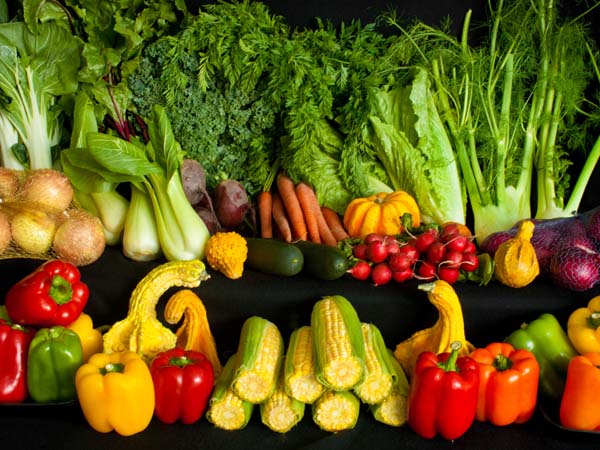The Plant-Based Community Cookery School
The Plant-Based Community Cookery School

Posted Thursday 7th August 2014...
Although London is an expensive city, there are still a variety of ways to find food that is affordable and also local and organic: good for people and planet. The following ways of buying food are good options for a number of reasons. They offer a way for you to support your local community, help the environment, and perhaps even discover a range of products that are not readily available in the supermarkets.
1) Vegetable box schemes
One way of buying affordable local and organic food is through subscribing to a vegetable box scheme. Veg box schemes are sold as a weekly subscription, either delivered to your door or available for collection at a specified point each week. The contents of your veg box vary from week to week depending on what is in season.
For further information about box schemes:
2) Farmer’s markets
Farmer’s markets are an enjoyable way of buying local and organic food. It provides a way for you to see your produce before you buy it, build relationships with producers, and maybe pick up some new cooking tips while at the market!
Here are a few good organic farmer’s markets
1. Stoke Newington Farmers’ Market
London’s only fully organic farmers’ market run by Growing Communities. A place to buy directly from small sustainable farmers and growers, helping to support small, sustainable farms and farmers across London. It runs every Saturday (10am-2.30pm) and is located by St Paul’s Church, Stoke Newington High Street, N16 7UY.
2. OrganicLea
Organic Lea currently run two community stalls…
3. SunnySide Community Garden Organic Food Market
Sunnyside Community Garden run an organic food market, where you can buy organic fruit and veg, pasta, meat, eggs, oil and juices. A percentage of the profit supports their mental health work. It is held every Saturday (10am-3pm) at the corner of Hazelville Road and St John's Way, N19.
For more information about farmer’s markets local to you, have a look at: www.localfoods.org.uk
3) Food buying co-operatives
What are food buying co-operatives?
Food buying co-operatives are a way of buying food together with a group of like-minded people, whether in a workplace, in a community, or with a group of friends.
What are the advantages of using food-buying co-operatives?
Examples of food-buying co-operatives:
For more information look at Sustain’s Food Co-ops Tool Kit (www.sustainweb.org/foodcoopstoolkit) or The Soil Association’s online resources (http://www.soilassociation.org/organicbuyinggroups)